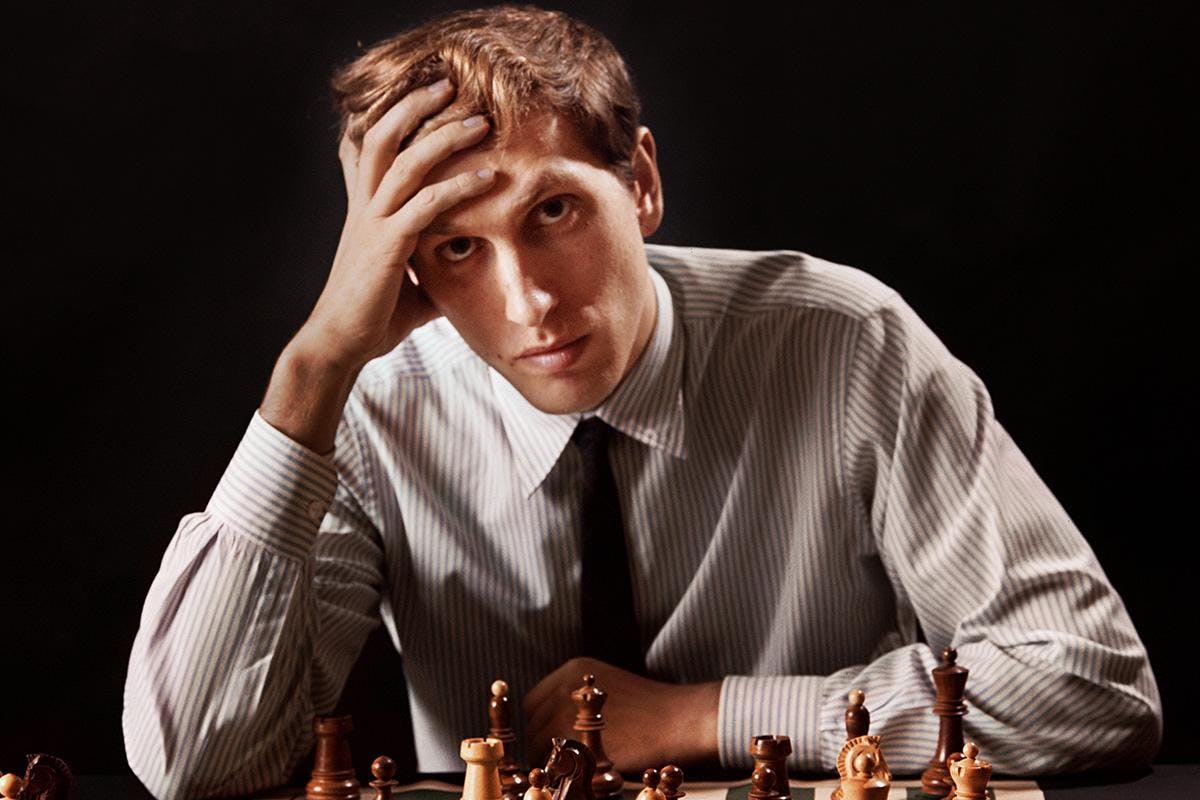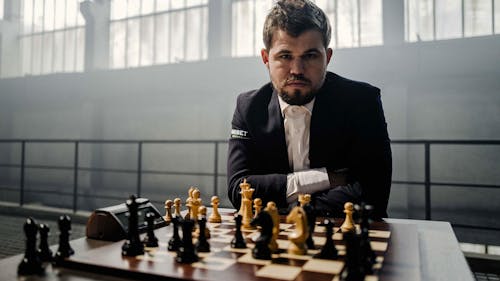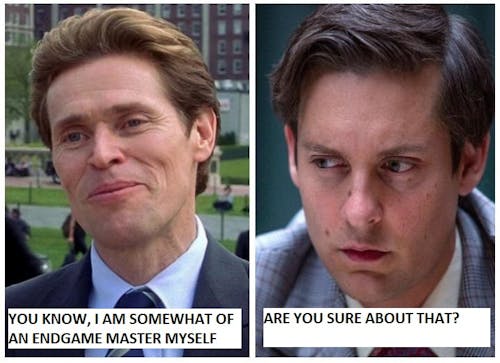Are you sure you want to delete your account?
(This will permanently delete all of your data - purchases, game scores, ratings, etc)
Change your username
Your current username is: guest
Change your account email address
Your current account email is:
Redeem your Fampay code here!
Use your Fampay code to get access to the Play Magnus Plus Membership!

How Many Years of Your Life Would You Sacrifice to Become a GM?
After the concert, a high society lady approached famous pianist Arthur Rubinstein and expressed her admiration for his performance: “I would have given up all my life to learn how to play the piano as well as you!” “This is what I did,” Rubinstein replied.
An indirect quote from "111 Motivationstipps für persönliche Höchstleistungen" by Alexander Christiani
Time is the most precious resource. Every day, we are facing a choice of what to prioritize and how much time to allocate to each activity. Some of us are meticulous and methodological in this respect. They use organizers and plan their routines by creating pie-charts of the time allocation. Others are more laid back and go with the flow, intuitively cruising through what life throws at them.
One way or the other, our lives are unbelievably short. For example, 75 years sounds like a decent amount of time, but it is only 27,375 days. Or 657,000 hours. This figure looks particularly intimidating to most of us because we casually spare a couple of hours on movies that are not even particularly interesting or important to us. And don’t get me started on PC games. On one of them, I have spent about 1,500 hours; on the other – over 2,000. As to the MMORPG that I have been playing more than anything else, the count exceeds 10,000 hours. Basically, in the past, I have dwelled over a full year in Middle Earth! Do I regret it? Not exactly. After all, John Lennon once said: “Time you enjoy wasting is not wasted.”
Whenever you feel like mastering something, and that normally takes at least 10,000 hours (hello, Malcolm Gladwell!), you had better realize how much you are investing and for what purpose. Let’s talk about chess. How important is it for you? What are you willing to sacrifice to become as strong a chess player as you can be?
I give 98% of my mental energy to chess. Others give only 2%.
Bobby Fischer
When I was younger and felt like I had more time for random stuff, I liked to discuss all sorts of imaginary philosophical situations with other people. For example, I have asked the members of one chess forum, “What period of time would you barter for the GM title in chess”? The detailed description was as follows:
Imagine that someone has invented the machine that can deprive a man of a certain number of years of life, i.e., make him older in an instant, while granting him a 2500+ playing strength and the GM title. Or, alternatively, a GM could use it to become younger but lose his chess prowess – not entirely, but, let’s say, down to grade A. What trade would you consider to be fair?
There were relatively few replies, but the results looked somewhat surprising to me.
“Less than a year” – 8 respondents.
“One year”, “two years”, “three years”, “four years” – none.
“Five years” – 2.
“Six years” – none.
“Eight years” – 1.
“10 years” – 7.
“Over 10 years” – none.
The most popular response (“less than a year”) surprised me greatly. Do these guys frequent chess forums without really wanting to improve? Or maybe they have unrealistic expectations about progress? Or is it an “I want it all, I want it now” kind of answer? Or perhaps they are not fans of instant gratification and value the process of achieving the level much more than the outcome? One can keep guessing forever.
The second most popular answer (“10 years”) is more adequate in the sense that most people who become GMs spend at least ten years treating chess as their primary occupation. I am not 100% sure, but I believe that’s what I voted for back then. Even though I still love chess immensely, now I would be more hesitant to spare ten precious years like that in the blink of an eye.
The third most popular reply (“five years”) implies that for some people, chess is similar to university studies, which generally last from 4 to 6 years.
The field of respondents was relatively strong and mainly consisted of proficient club players and a few masters, including GMs.
And how would you reply to such a question? It may look too abstract and even somewhat absurd, but it will reveal a lot to you about your motivation to improve in chess, the role of the game in your life, and your current lifestyle. Once you answer it frankly for yourself, it will be easier to realize whether you are allocating too little or too much time to chess.
Of course, I am by no means implying that in the real world, people directly trade years of their life for chess skills. Most of us agree that the journey is more important than the destination. The road to becoming a GM is a self-sufficient adventure with a nice bonus at the end in case it ends successfully. Still, the question stands.
P.S. According to the latest Magnus Trainer survey, 25% of our apps’ users cite “becoming a professional player” as one of the main drivers behind their interest in chess. Nowadays, it is hard to imagine someone leading the life of a pro player without having the GM title. Therefore, we can proudly state that there are quite a few super ambitious players who enjoy training with the help of our apps!
Whether you are a casual fan of chess who has 5 minutes on it per day or a hardcore future pro who lives and breathes chess, you should enjoy the mini-games and chess lessons brought to you by Play Magnus – the ultimate chess training apps created by World Champion Magnus Carlsen and his star-studded team of experts. Subscribe now. The clock is ticking!

